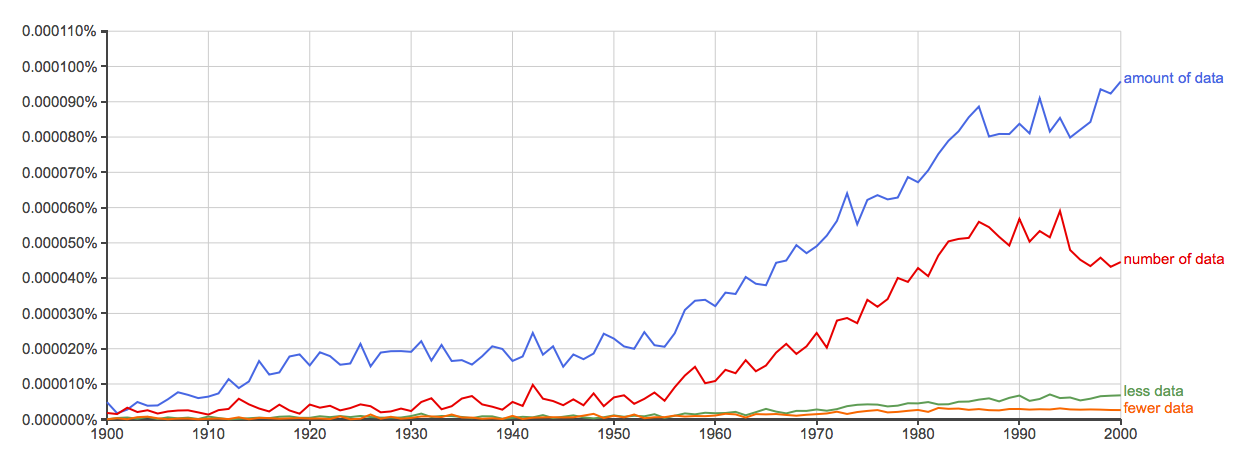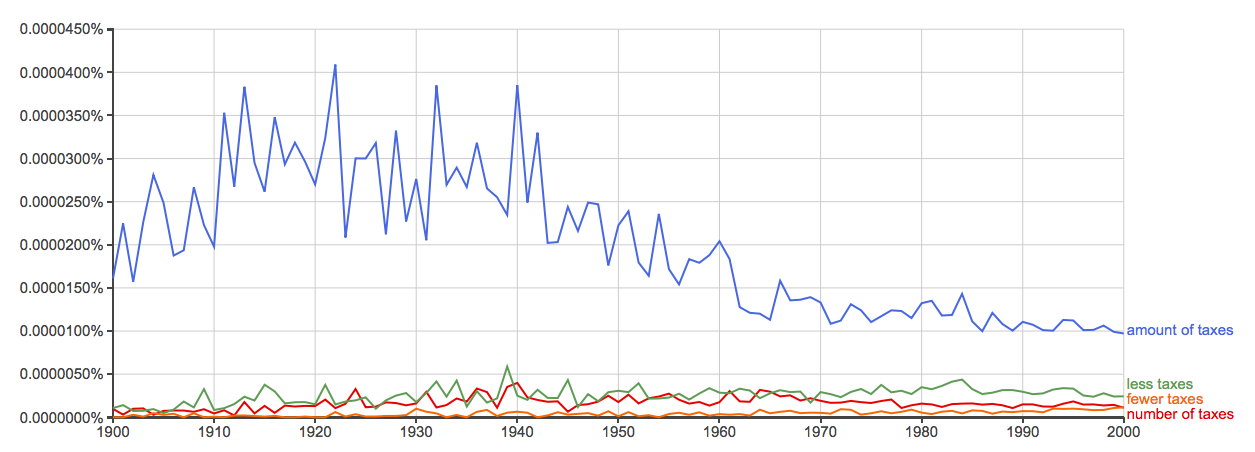"Data" is usually non-count
It seems "amount of data" and "less data" are both more commonly used than "number of data" and "fewer data". Google Ngram Viewer:

As Sven Yargs points out, there are a lot of imaginable sources of false hits for "number of data", so its actual prevalence is probably even lower than this implies. I was however able to find an example of someone who uses it:
Then again, this example may be suspect since normally, we would actually expect a singular verb after "the number of [plural_noun]". In other words, Bevan seems to have made at least one hyper-correction, so it's possible that his use of "number of" is itself an error.
Perhaps this means it is treated as a non-count noun. There seems to be general consensus that this is the criterion for using amount of vs. number of, or less vs. more (although it's also well-known that people actually use less in more situations in speech than would be expected from this principle).
This may not be directly related its grammatical number
I know you didn't ask about the plurality of data, but since it was brought up in some comments and answers, I thought I'd like to write about it as well. I actually am unsure if the apparent preference for treating data as non-count can be taken as evidence for the grammatical number of the noun one way or another. Of course, singular mass nouns like money take amount of and less. But another noun that seems to be treated similarly, yet is clearly plural in standard English is taxes (it's the plural of the count noun tax):

In many cases, it's not actually possible to replace "amount of taxes" with "number of taxes" without changing the meaning of a sentence, or rendering it nonsensical (for example, in "The amount of taxes he paid was ridiculous" or "the amount of taxes imposed shall not exceed $___"). So it seems to me that the advice of resources like Grammarist (which says "it’s always safer to use number in situations like this [with count nouns]) is not quite correct.
I suppose a pedant who found "amount of taxes" unacceptable could use another construction, like "amount paid in taxes" or "amount levied in taxes". I find it hard to think of a similar alternative for "data". If you truly mean "a number of items of information" then "number of data" would be correct, but I think this isn't quite what people mean when they say "amount of data". But perhaps its close enough in meaning for some people. Here are some examples of "fewer data" being used with this meaning:


